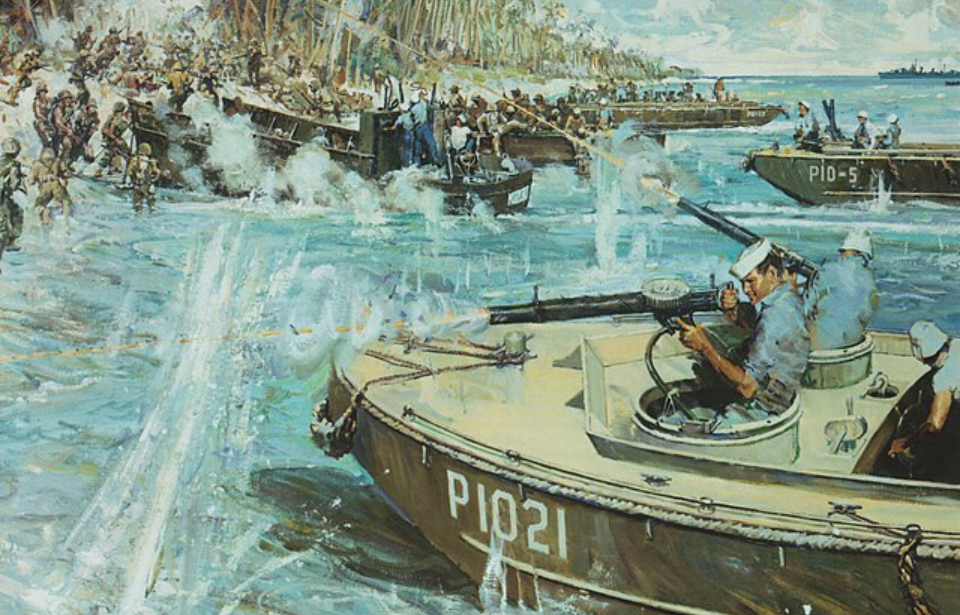The Guadalcanal Campaign, referred to as the Battle of Guadalcanal, marked a shift in the Pacific Theater during the Second World War. The six-month conflict represented the first significant ground confrontation between the Imperial Japanese and Allied forces.
Distinguished by acts of valor and selflessness, the campaign featured individuals who placed the well-being of their fellow men above their own. Among these heroes were Douglas Munro and Raymond Evans, both US Coast Guardsmen whose exceptional teamwork was instrumental in safeguarding those under the leadership of Chesty Puller.
Douglas Munro and Raymond Evans both grew up in Washington
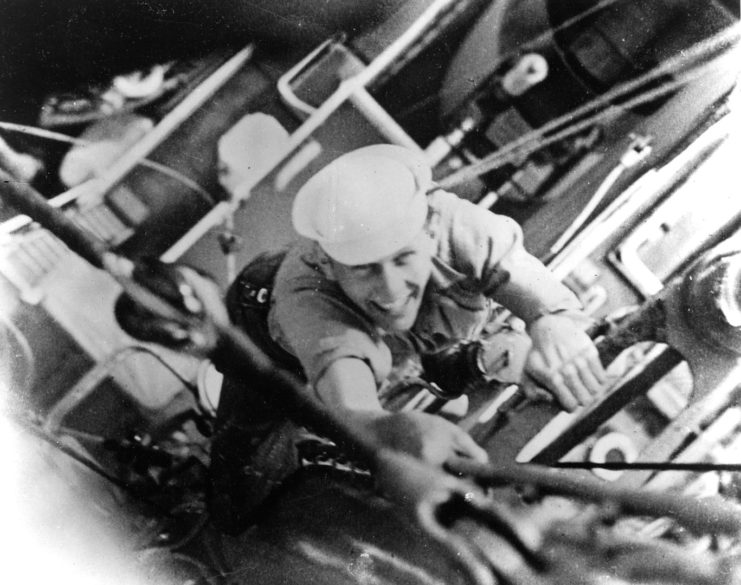
Douglas Munro, born in Vancouver, British Columbia in 1919, spent his formative years in the Washington State town of South Cle Elum. A versatile young man, he joined his high school’s wrestling team and showcased his musical talents by playing the trumpet, harmonica and drums. Despite attending the Central Washington College of Education, he left in 1939 to contribute to the war effort, choosing the US Coast Guard because he believed it would afford him the optimal opportunity to rescue others.
Raymond Evans, born in Bellingham, Washington in 1921, and predominantly raised in Seattle, faced challenges in finding and securing employment following his high school graduation. Frustrated by his limited prospects, he determined that enlisting in the Coast Guard would be the most promising path forward.
The “Gold Dust Twins”
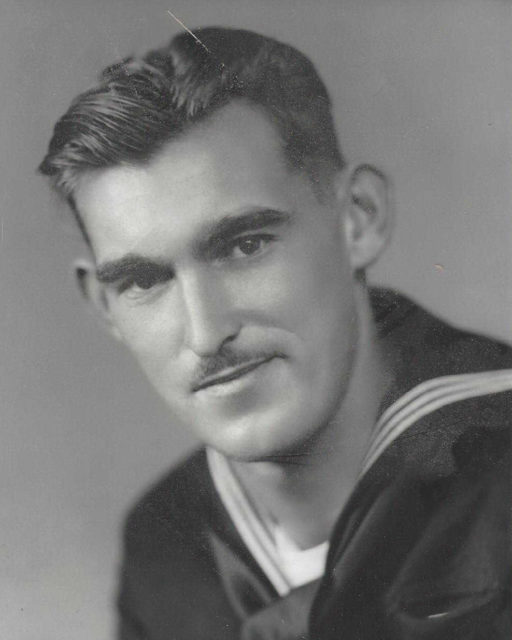
Evans and Munro first met during their processing in Seattle, and their friendship flourished as they trained together at Coast Guard Air Station Port Angeles. Quickly bonding, they became known as the “Gold Dust Twins,” a fun reference to the popular Gold Dust Washing Powder, which featured a pair of twins on its packaging.
Munro stood out as an exceptional Guardsman, impressing instructors with his skills. Evans noted Munro’s ambition for a long-term career in the service. As tensions escalated prior to the Japanese attack on Pearl Harbor in December 1941, the United States transitioned the Coast Guard from the Department of the Treasury to the Department of the Navy.
Douglas Munro lost his life at Guadalcanal
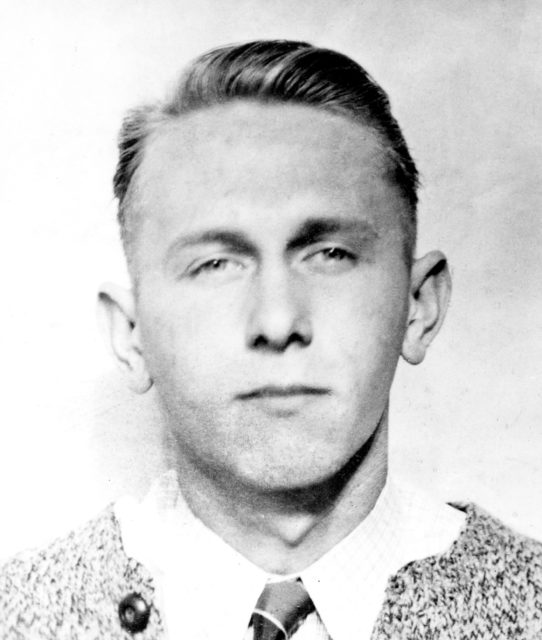
In 1941, Munro and Evans volunteered to serve on the attack transport USS Hunter Liggett (APA-14). By the next year, the ship was in the Pacific to support the Guadalcanal campaign.
On September 27, 1942, the legendary Chesty Puller tasked the pair with ferrying US Marines to points from which they could attack Japanese positions along the Matanikau River. The then-lieutenant colonel had wanted to attempt an amphibious assault that would allow his Marines to get onto the beachhead behind the river.
While the initial landings went well, the Marines were soon ambushed, resulting in mass casualties. Coast Guardsmen were sent to pull out the injured, and Evans and Munro volunteered to stay back and use suppressive fire to allow the Marines to evacuate.
While the evacuation, for the most part, went well, one boat got stuck. Munro and Evans towed the vessel from the beach, but were spotted by a Japanese machine gunner, who opened fire. Munro was shot in the head and later died of his injuries. For his actions, he was posthumously awarded the Medal of Honor.
Raymond Evans’ later service with the US Coast Guard
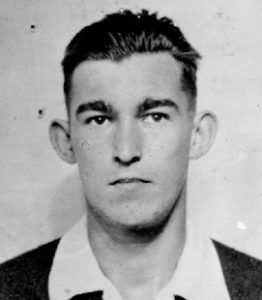
Raymond Evans served alongside Douglas Munro during their mission on the Matanikau River and was by his side when his comrade met his end. According to Evans, Munro’s final words were a poignant inquiry, “Did they get off?” A smile graced his best friend’s face upon learning of the mission’s success.
In recognition of his gallant service, Raymond Evans was honored with the Navy Cross. However, during the ceremony, there was no physical medal available to present to him. Vice Adm. Joseph Stika, in a gesture of deep respect, unfastened his own Navy Cross, which he had received in 1918, and affixed it to Evans’ chest.
Evans continued his dedicated service in the Coast Guard until 1962. Throughout his career, he held positions as the commander of the USCGC Ivy (WAGL-329) and the executive officer of the USCGC Chautauqua (WPG/WHEC-41). Upon retiring from active duty, he’d attained the rank of commander. He passed away on May 30, 2013, at the age of 92.
The legacy of the Gold Dust Twins
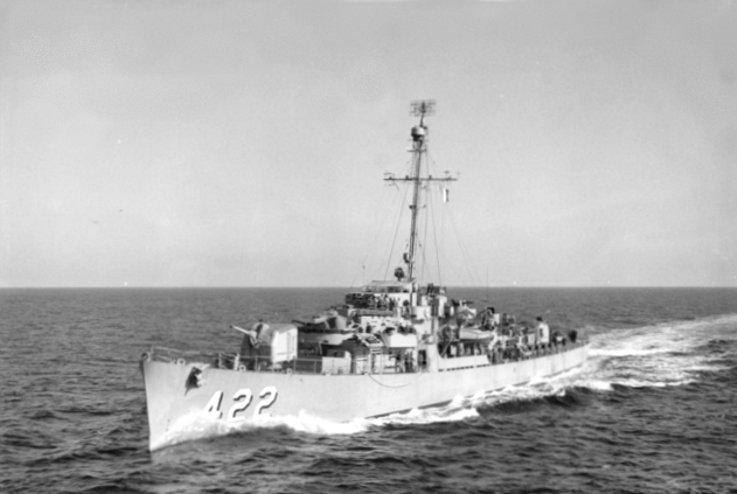
Both men are well remembered by the US Coast Guard. An award named for Raymond Evans is given each year to an outstanding coxswain, and the USCGC Raymond Evans, a Sentinel-class cutter, was received by the service in June 2014.
Want War History Online‘s content sent directly to your inbox? Sign up for our newsletter here!
To this day, Douglas Munro remains the only Guardsman to be given the Medal of Honor. Three warships – a destroyer escort and two cutters – have been named in his honor, as have three Coast Guard facilities. He is also the only non-Marine to be featured on the Corps’ Wall of Heroes at the National Marine Corps Museum in Triangle, Virginia.
